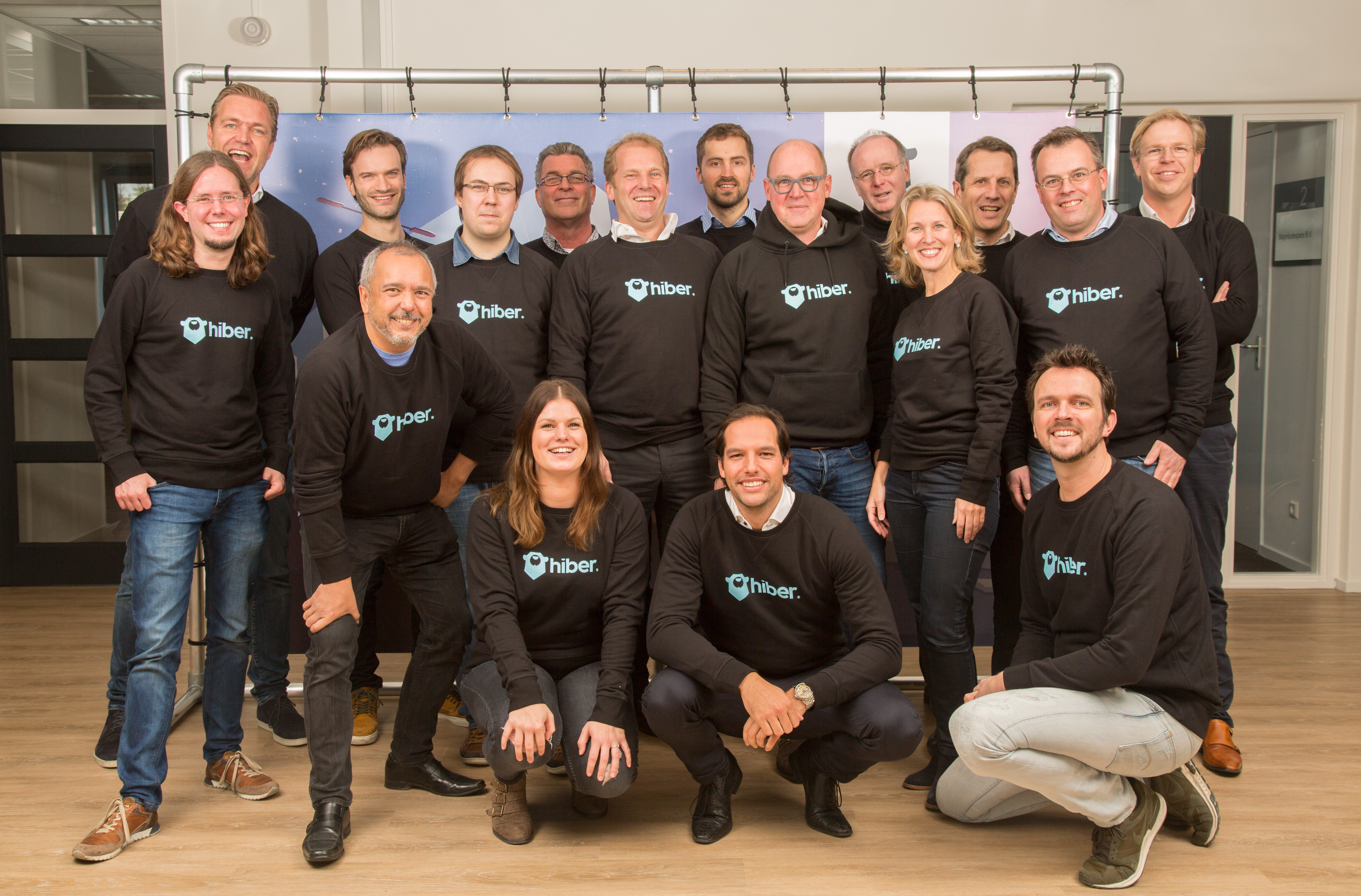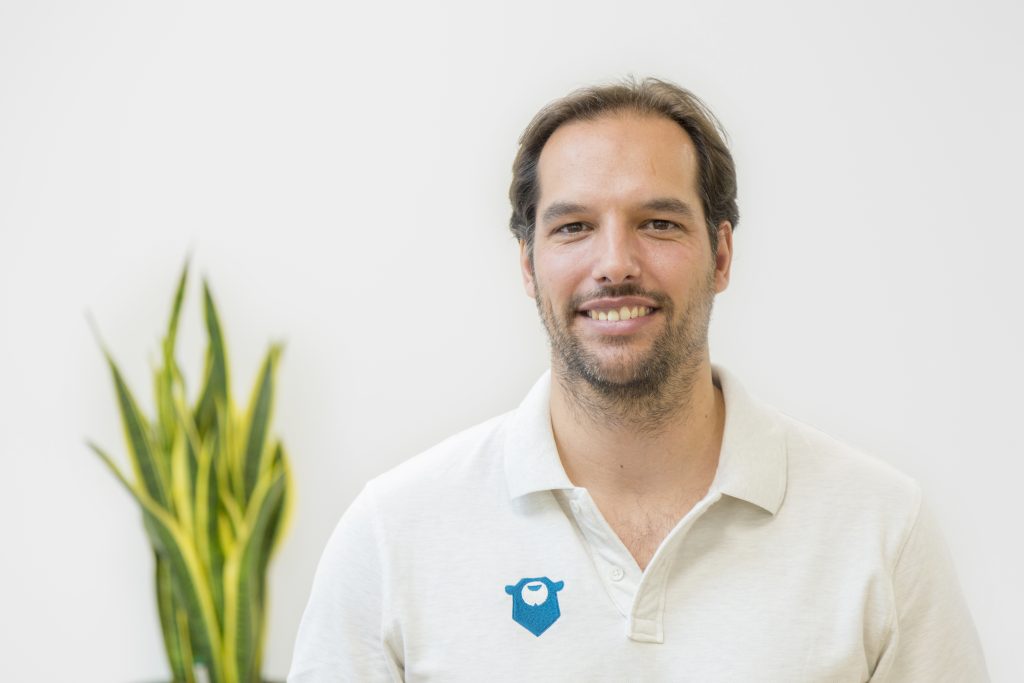Hiber is building the first truly low-power and low-cost satellite connectivity network. It is offering to connect your devices anywhere on the globe for only a few euros per device, per year. It plans to become an industry leader in the next generation “internet of things” (IoT) core infrastructure.
Spaceoneers spoke with their Co-founder / Director Business Intelligence, Coen Janssen.
How did you come up with Hiber? How did your company come about?
In the beginning of 2016 we started looking into the opportunities of “new space” and saw there are lots of new possibilities with basically the internationalisation of the industry, going from an institutional to a commercial market. These new and small satellites enabled all kinds if new business models and opportunities. At the same time we were looking at the Internet of Things (IoT), a buzzword for many years already but we finally saw the uptake of what can be done with IoT and the actual deployment being done. The intersection of those two topics, where they came together and clashed is where we thought is a huge opportunity because only 10% of the world is currently covered by GSM or 4G or 5G, Wi-Fi and Bluetooth. So we said why can’t we just expand all these use cases that are finally getting live and be able to roll those out in the rest of the world. That’s really where we started.
Was that the main reason for the name change?
We founded the company in 2016, about two and a half years ago. We started off as Magnitude Space but found over time that there is already a company in the US called Magnitude, which started providing connectivity. Also we have experienced if you position yourself as a space company the customers here on Earth are still thinking it is very expensive and full of risk as space is associated with these aspects.

You’re based in Amsterdam but now you are expanding globally?
Our headquarters is currently based in Amsterdam, the Netherlands. However, we also have sales people based in Asia and the United States. We have legal entities in several countries around the world but we mention the ones being here in Amsterdam, our headquarters and the one in Delft where we have our research development centre and one of our own ground stations. To apply for our FCC licence, we had to establish our entity there and with part of our legal team stationed near Washington DC, we choose for Maryland.
How did you start off as a team?
I’ve been involved with investing in space for about a year before we started with Hiber. With about a year of space industry analysis under our belt, we gave the green light for the small satellite IoT project. However, the first months have mainly been spent with potential customers to understand their requirements. Only after this market research, we started the feasibility studies regarding launching our own satellites into space. We started the company with experienced entrepreneurs like Laurens Groenendijk (founder of JustEat Benelux), Erik Wienk (CFO booking.com) and Maarten Engelen (co-founder Treatwell). However, we expanded our team with satellite and communication veterans like Bruce Henoch, Hub Urlings and Steven Rutgers. And by now, about 30 more great staff members, which enabled us to become first to market with our HiberBand network.

What’s your goal in the next year to five years looking forward?
Our first satellites are now in the late stage of commissioning. As soon as that is finished, we will start our commercial service, which is global from day one. The satellites will go from pole-to-pole so we will see every place on Earth at least once per day. Starting with the service is what we want to accomplish this year. We also want to add a few more satellites to the constellation to expand the network. That’s our main goal for this year to make sure we have commercial traction, that all the pilots that have signed up already will become active players in the field.
Looking a bit further ahead, we want to go from once per day to once per hour, towards near to real-time. In about 5-10 years, we would plan to be the dominant player in IoT on a global scale.
Lots of companies are looking towards IoT, so what makes Hiber different?
There are an extreme amount of space startups, that’s for sure. If we zoom into the earth observation and communications market, it is already less. You can probably split the communications market into two. We have the broadband internet players: OneWeb, Starlink and even Amazon nowadays. Then you have the low bandwidth guys like us – one short message, based on low power and not a large amount of data. By showcasing that we operate according to all the relevant laws and regulations potential customers of all sizes know you are the safe bet. Whenever you want to send data you have to do this in a spectrum and have to go to the International Telecommunications Union (ITU) to get approval for what you are doing. We are in prime position. Everyone who is also in the race for IoT has to coordinate with us so they don’t get in our way. Therefore, we keep on focusing on making sure from a regulatory point of view that we are the best way to go. With our satellites in space already and customers to deploy on all continents, we are ready to go to market.

As you look at IoT going forward, which technologies and trends do you think will change in the next years?
Of course what you see on the one hand, energy consumption is extremely important. People want to have autonomous sensors out there and not worry about getting data back. What you will see over time is that if it becomes apparent this can be done they will want to read out more information. The requirement right now is that customers want little bits of data – short and simple. However towards the future that amount might increase and will want more near to real-time connectivity. That’s exactly our aim to grow the company towards.
You also have an engaging challenge for people called Creative fund. How do people get involved?
Our Creative Fund is now live to support new initiatives in the world of IoT. We have to make sure there are new use cases that we are not aware of that we will serve in the future. Our Creative Fund is a way for us to see all kinds of genius ideas from creative people. Every 3 months the idea with the most votes wins a developer kit for Hiberband, 3 years of free satellite connectivity and support from the brightest minds at Hiber. We will support them to getting connectivity in place and prototypes to work with our network.
What advice would you give to anyone setting up their own startup?
For me personally, team is number one, above all others. Over time you will gain new insights, or maybe even pivot the company but your team is the essential part as you spend so much time with these people around you that you have to make sure it works. I’m extremely proud to work together with such experienced and bright minds, and wish every other entrepreneur this similar experience!

